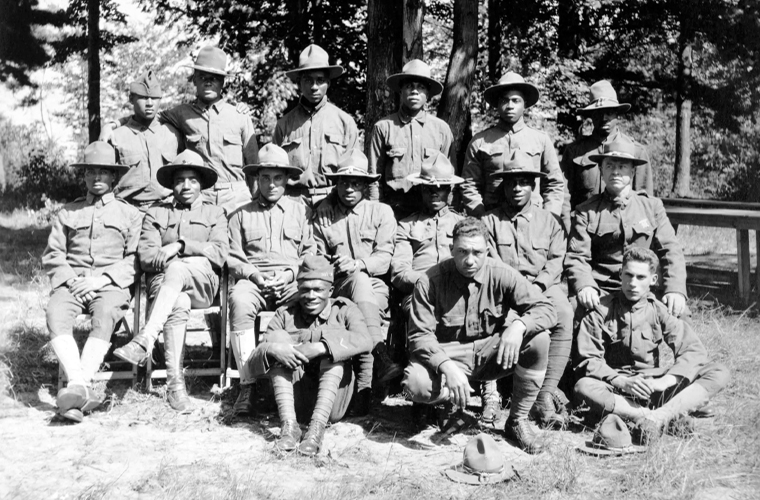The Great War, also known as World War I, was a global conflict that lasted from 1914 to 1918. It involved more than 30 countries and resulted in millions of casualties. The United States entered the war in 1917, after Germany resumed its submarine attacks on American ships. The US mobilized more than four million soldiers to fight in Europe, among them about 370,000 African Americans .
African Americans had a long history of military service in the United States, dating back to the Revolutionary War and the Civil War. However, they faced racial discrimination and segregation in the armed forces, as well as in the society at large. They were excluded from the Marine Corps, restricted to menial roles in the Navy, and segregated into separate units in the Army . Despite these challenges, many African Americans volunteered or were drafted to serve their country, hoping that their patriotism and sacrifice would earn them respect and equality.
The 92nd and 93rd Divisions
The Army created two all-black combat divisions for the war: the 92nd Division and the 93rd Division. The 92nd Division was composed mostly of draftees and some black volunteers and regulars. It was trained and led by white officers, who often held racist attitudes and doubted the abilities of their black troops. The 92nd Division fought under American command in France, participating in several battles, such as the Meuse-Argonne Offensive and the St. Mihiel Offensive. However, it faced many difficulties, such as poor equipment, inadequate training, low morale, and hostile relations with white allies and civilians. The 92nd Division suffered more than 1,600 casualties and received mixed reviews for its performance .
The 93rd Division was composed of four infantry regiments: the 369th, 370th, 371st, and 372nd. These regiments were originally part of the National Guard units from various states, such as New York, Illinois, Ohio, and Maryland. They were trained and led by black officers, who had more experience and rapport with their men. The 93rd Division was attached to the French Army, which welcomed them more warmly than the Americans and provided them with better equipment and training. The 93rd Division fought bravely and fiercely in several battles, such as the Champagne-Marne Offensive and the Second Battle of the Marne. They earned the respect and admiration of their French allies and enemies alike, who nicknamed them “hellfighters”, “black devils”, and “swallows of death”. The 93rd Division suffered more than 5,000 casualties and received numerous awards and decorations for its valor .




















The Services of Supply
In addition to the combat divisions, many African Americans served in non-combat roles in the Services of Supply (SOS) section of the American Expeditionary Forces (AEF). The SOS was responsible for providing logistics and support to the troops on the front lines, such as transportation, communication, engineering, medical care, and labor. The SOS comprised of hundreds of black units, such as stevedore battalions, labor battalions, engineer battalions, signal battalions, ambulance companies, sanitary companies, depot companies, etc. These units performed vital tasks behind the scenes, such as building roads and bridges, laying railroad tracks and telegraph lines, loading and unloading ships and trains, digging trenches and graves, clearing mines and debris, driving trucks and ambulances, etc. These units faced harsh conditions, long hours, and dangerous work .
The Legacy of African American Soldiers
The African American soldiers who served in the Great War made significant contributions to the war effort and demonstrated their courage, loyalty, and skill. However, they did not receive equal treatment or recognition from their own government or society. They were often denied promotions, awards, and benefits.
They were subjected to segregation, violence, and discrimination. They were not allowed to participate in victory parades or celebrations. They returned home to a country that still denied them basic rights and freedoms .
The Great War did not make the world “safe for democracy” for African Americans, nor did it bring them social equality. However, it did inspire them to continue their struggle for justice and dignity. It also sparked a new wave of cultural and political activism among African Americans known as the Harlem Renaissance
and the New Negro Movement. The African American soldiers who served in the Great War were part of a long tradition of black military service and a catalyst for black civil rights .

